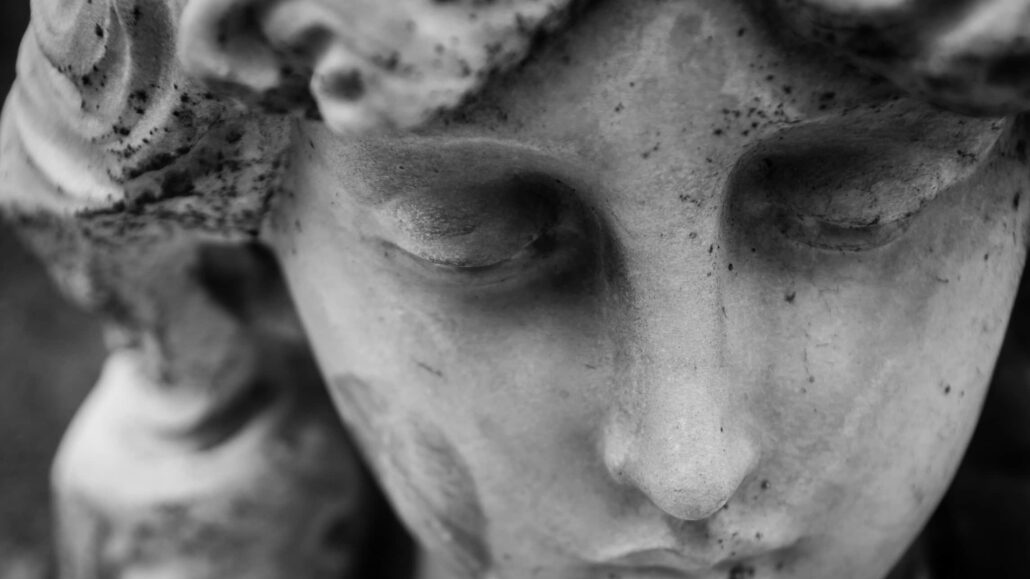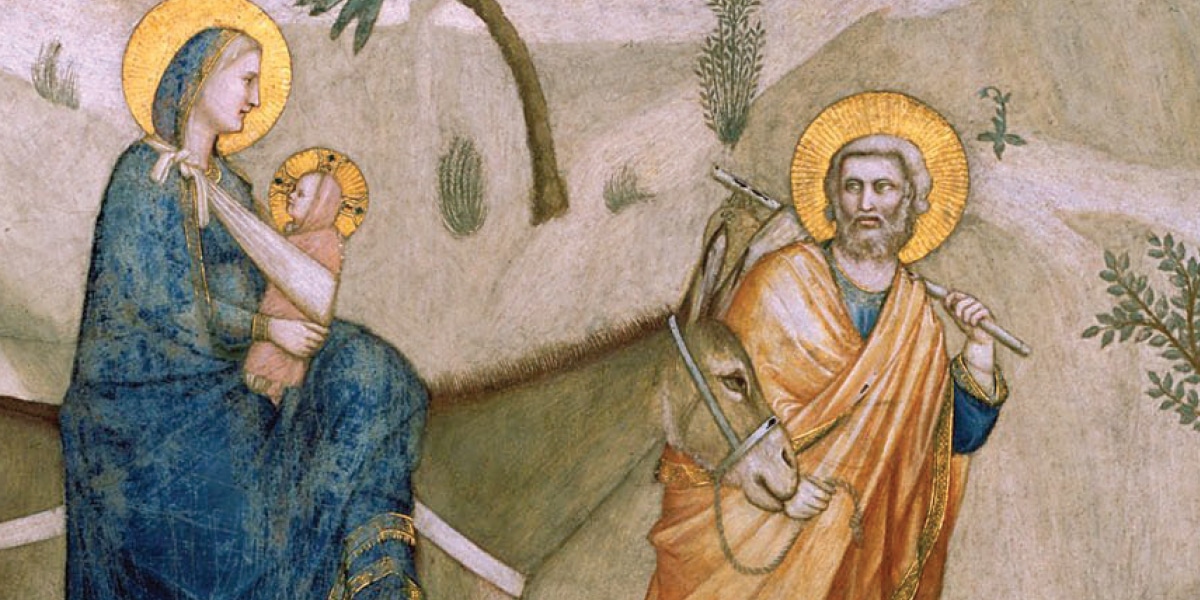Some women seem to have a monopoly on the New Testament press. We hear a lot about the Marys, for example—Jesus’ mother, Mary Magdalene, the sister of Martha. We know about Elizabeth and Anna.
But how about Lois and Eunice, Phoebe and Lydia, and many others who are overlooked or forgotten? They must have been included in the New Testament story for a reason. What might they be there to teach us? How can they inspire us? The fact that they are mentioned at all challenges us to find out what we can learn from them.
Women appear in the Scriptures either because they’re extraordinary or because there is a problem. It’s interesting to note that there are not many cases in the New Testament in which a woman appears in a negative light. A common theme that binds together many of these women’s stories is suffering—or more specifically, what they did about it and how it might have opened them up to the possibilities of grace. Many endured infirmities, others losses of husbands and sons. With some, their poverty is noted, while others draw on their influence or resources in remarkable ways. It is women who elicit some of Jesus’ most memorable praise.
For instance, of the woman who anoints him, Jesus says, “She has done a good thing,” and wherever the Gospel is spread, what she has done will be told in memory of her (Mt 26:10, 13). Of the widow who contributed two small coins to the temple treasury, Jesus says that from her poverty she has offered more than others: her whole life (Lk 21:3). Jesus encouraged the persistent pagan woman begging help for her daughter, saying, “Great is your faith” (Mt 15:28). About the woman Jesus described as a “daughter of Abraham,” cured of a long infirmity, the Gospel says, “She stood up straight and glorified God” (Lk 13:13).
Caretakers of Faith
Some New Testament women knew how to turn adversity into an opportunity to advance the Gospel. Take the example of Priscilla (Acts 18:2-3, 26; Rom 16:3). She had an impressive education and social standing, but that didn’t seem to make a difference when she and all the other Jewish people were expelled from their homes in Rome under an edict of the emperor. She and her husband wound up in Corinth with other exiles, where they would eventually encounter Paul. They likely wondered what they would do with the rest of their lives, in addition to making tents.
Priscilla, whose social standing was probably above her husband’s, appears to have been at least as well educated as he was. In any case, they are both named as teachers of the Way. Their learning contributed to the missionary education of Apollos, one of the pillars of the important churches of Corinth and Ephesus.
Despite the fact that Jewish women did not have the same religious obligations as men, many women are shown to be ardent students of Scripture because of family responsibilities. Multiple times the Torah instructed, “Teach this to your children.” Often, children’s education was entrusted to women, motivating wives and mothers to learn the law so that they could pass it on to the next generation.
Paul cautions Timothy against letting his youth and inexperience be used as an impediment to his role as pastor. To inspire his confidence, Paul reminds his young protégé that, since his infancy, he has learned the Scriptures from his mother, Eunice, and grandmother Lois, suggesting that these women knew them well (2 Tim 1:5; 3:15). Paul implies that their knowledge of the Jewish Scriptures prepared them all to become converts to Christ.
The Hospitality of Widows
The young church in Philippi was struggling on many fronts, including leadership gaps and internal disagreements and competition. That helps explain why Paul saw a feud between two women there so detrimental to that young community that he urges them by name to be reconciled with each other for the sake of the whole Church (Phil 4:2-3).
Paul does not side with either Euodia or Syntyche; neither does he judge which woman is in the right. Rather, Paul tells them to remember their new identity “in the Lord,” challenging them to be like Christ, who gave his life for our salvation. Paul is not just calling out two individuals, but, in noting their significant standing and influence in the community of Philippi as leaders, he reminds them of their greater responsibility for being an example of the power of the Gospel.
Having been recently widowed myself, I am especially interested in the role of widows as described in the New Testament, where we learn that they played a vital role in the spreading of the Gospel and the foundation of the Church. In a pastoral letter, Paul advises that to be enrolled in the order of widows, a woman should be a certain age, have gained a good reputation for having “raised children, practiced hospitality, washed the feet of the holy ones, helped those in distress” (1 Tim 5:10).
Widows in particular, perhaps because they had extra room in their houses, could put these at the disposal of visiting missionaries and traveling teachers, as well as believing locals who might gather there. They could hold regular meetings at least once a week for study, prayer, and worship.
We hear of houses headed by women being used as such meeting places. So, for example, we learn from Acts that the apostles, Jesus’ mother, and other relatives, as well as a growing number of believers, holed up in an upper room in Jerusalem, after Jesus’ ascension, to await Pentecost. At that time, the Spirit would reveal to them what they should do next and fill them with courage and boldness to go out and spread the Gospel (Acts 1:13-14).
There is speculation that this upper room or another one like it belonged to a certain Mary of Jerusalem, who is named later in Acts 12:12-16. On that occasion, when Peter was miraculously released from jail, Acts tells us that he went to the house of Mary, mother of John Mark, where he knew concerned believers would be gathered. (That she is identified with her son, rather than with a husband, could suggest that she was widowed.)
There, a young girl named Rhoda answered his knock on the door but was so startled to see him that she immediately closed it again in his face. But he kept knocking and eventually the door of Mary’s house was opened again, and he was received by the amazed and grateful community that had been waiting to know what God might want of them next.
Women as Benefactors and Ambassadors
Similarly we hear in Acts of the Apostles of other women opening their houses and sharing their resources for the betterment of the Church. Take Lydia for instance, who, after hearing Paul speak outside the gates of Philippi, welcomed him into the city and into her home (Acts 16:13-15, 40). The community there would become one of the strongest. As a gateway to Europe, Philippi was strategic to Paul’s mission to spread God’s word to the ends of the earth. Their chance meeting by the river brought Paul, the itinerant preacher, together with Lydia, a woman of means. It also shows how such contacts nourished and supported Paul and his fellow travelers in so many ways, before these believers had to part company again in pursuit of their mutual call to found, form, and strengthen the churches.
Another woman with vital connections that benefited Paul and his mission was Phoebe, Paul’s ambassador and probably the one entrusted with taking Paul’s crucial letter to Rome long before he was able to get there himself (Rom 16:1-2). Paul calls Phoebe a sister, deacon, and “benefactor to many and to me as well.” Phoebe must have possessed material resources and enjoyed a certain social standing to engage in her role as benefactor.
In noting that she has been a patron to Paul himself, he acknowledges that, compared to her, he would have had a relatively subordinate social position as her client. Much more than a helper, Phoebe appears to have been key to Paul’s plan not only for the Roman mission but also for his eventual mission to Spain then thought to be the “ends of the earth.” In her own right, Phoebe would have been equipped to undertake a journey to Rome with her own agenda and the means to carry it out.
But what he asks of the Romans indicates just how much he depends on this woman: “Receive her in the Lord in a manner worthy of the holy ones, and help her in whatever she may need from you” (Rom 16:1-2). In addition to the symbolic role of carrying Paul’s letter, Phoebe may have been dispatched to Rome to prepare the groundwork for Paul’s Spanish mission.
In writing the Letter to the Romans, Paul was trying to get acceptance and support for himself and for the Gospel he preached. He would have considered the letter’s bearer as an essential part of his plans for laying a firm introduction and foundation with the Romans, a community Paul realized was indispensable to him, on par with his acceptance by Jerusalem. If they accepted Phoebe and her mission, and if they helped her establish a foundation for the mission to Spain, the believers in Rome would likely soon welcome, endorse, and speed Paul on his way to Spain. Paul needed Phoebe almost as much as he needed the Romans.
There are many women featured in the letters of Paul, as well as in the Gospels. The overwhelming majority of them, named and unnamed, are portrayed positively across the board. This simple survey of some of the women of the New Testament demonstrates how Jesus recognized their gifts and struggles and how, in turn, women in the early Church offered their gifts to the growth of the community of faith. Mention of the presence, role, and support of women is something of a surprise in the patriarchal world of the New Testament. But the fact that they are there challenges us to understand that, without them, the Gospel as we know it could not have been told.








